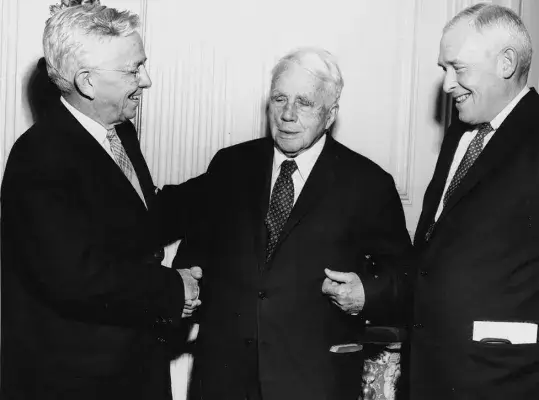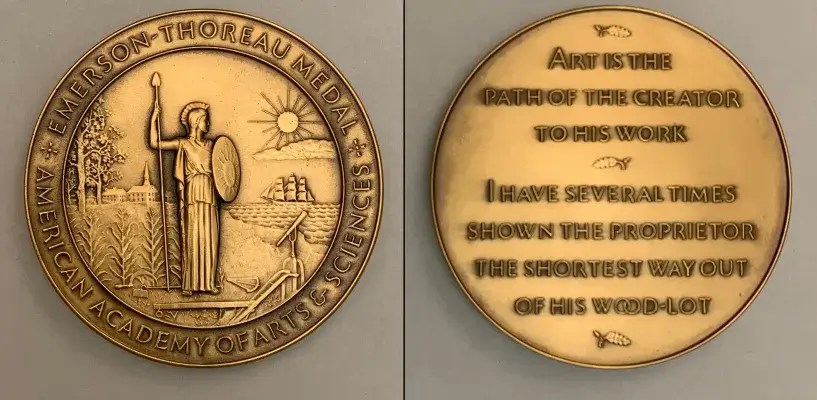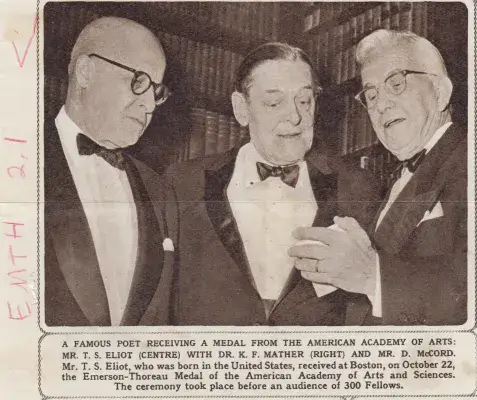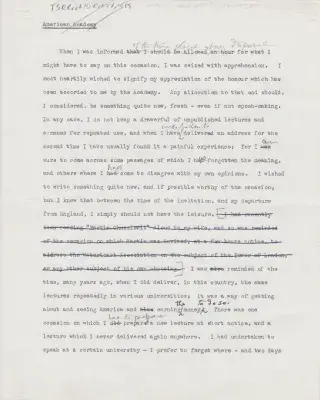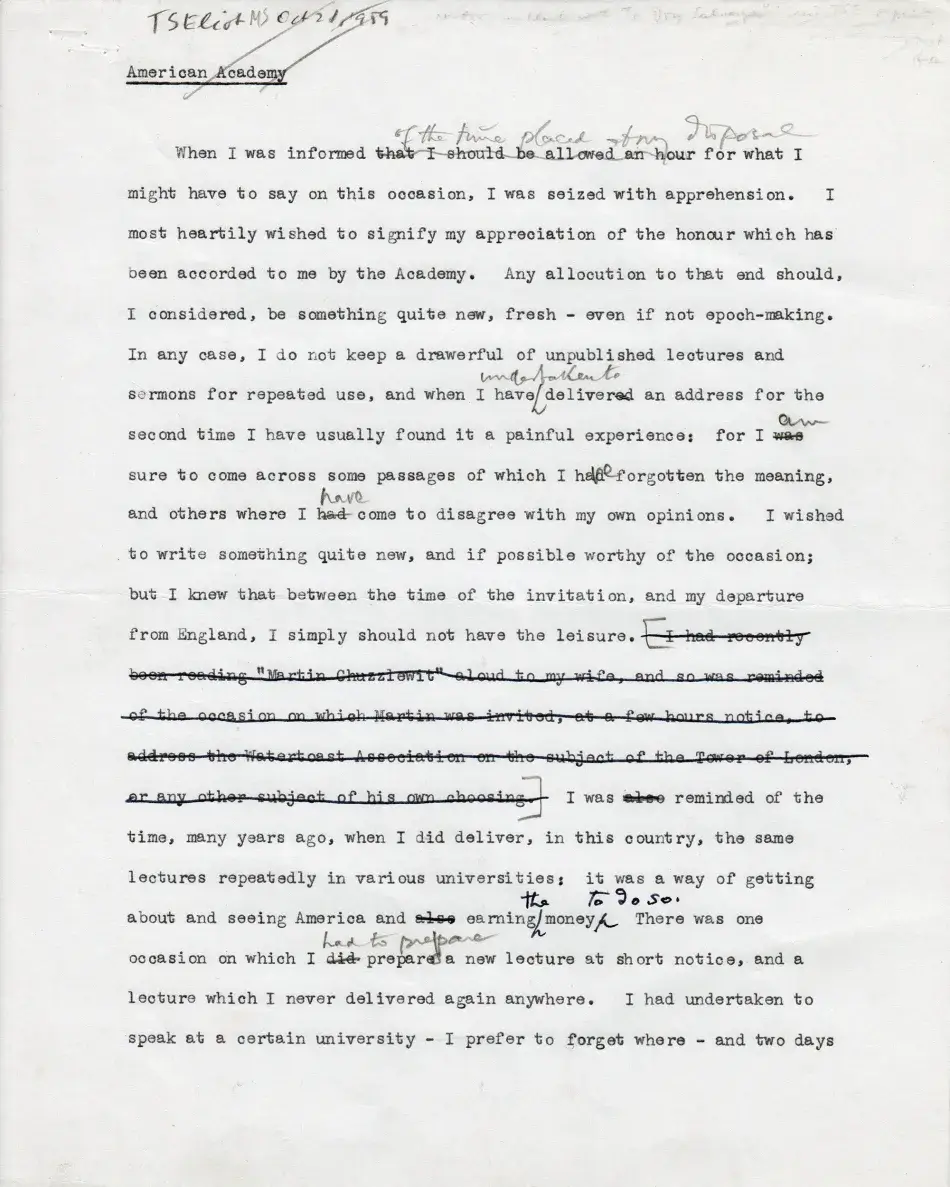
Established in 1958 to recognize distinguished achievement in the field of literature, the Emerson-Thoreau Medal is awarded to an individual for their overall literary achievement. The first recipient of the award in 1958 was poet Robert Frost (elected to the Academy in 1931).
In 1959, the award was bestowed upon poet, playwright, literary critic, and editor Thomas Stearns (T.S.) Eliot (elected a Foreign Honorary Member in 1954). Upon accepting the medal at the Academy’s 1416th Stated Meeting on October 21, 1959, Eliot spoke about “The Influence of Landscape upon the Poet.” He referenced the New England landscape, in particular, and its relationship to his own work. He also drew comparisons between himself and Robert Frost as New Englanders not by birth, but by choice (Frost hailed from California and Eliot from Missouri). Eliot ended his presentation by reciting “The Dry Salvages” from his Four Quartets, which, he said, “begins where I began, with the Mississippi; and that it ends, where I and my wife expect to end, at the parish church of a tiny village in Somerset.”
Below is an excerpt from T.S. Eliot’s acceptance speech after receiving the Emerson-Thoreau Medal:
“This is the Emerson-Thoreau Award: it brings to mind Concord in particular and New England in general. Then I reflected that my honoured predecessor, the doyen of American poets to-day, was Robert Frost, distinctly in the mind of everyone a New England poet. I then asked myself whether I had any title to be a New England poet, as is my elder contemporary Robert Frost, and as is my junior contemporary, Robert Lowell: and I think I have . . . . Nevertheless, this seems the occasion for me to stake my claim to a New England status. I am used to dealing with the question of whether I am, qua poet, American or English; and usually can escape by pointing out that whichever Wystan Auden is, I am the other: though seriously my poetry, like that of other poets, shows traces of every environment in which I have lived.”
